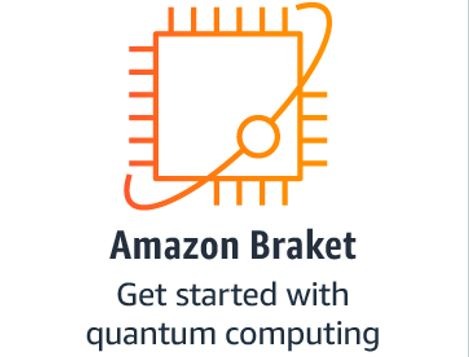

Amazon Web Services (AWS) has made a significant entry into the quantum computing field with AWS Braket, a fully managed quantum computing service launched in 2020. AWS Braket aims to democratize access to quantum technologies, providing researchers, developers, and organizations with a unified platform to explore and harness the power of quantum computing.
AWS Braket stands out in the quantum computing landscape for several key reasons. First, it offers a unique gateway to multiple quantum hardware technologies, including superconducting qubits, trapped ions, and quantum annealers, all through a single interface. This multi-provider access allows users to experiment with different quantum architectures without needing to interface with multiple systems.
Another distinguishing feature of AWS Braket is its hybrid quantum-classical approach. The service seamlessly integrates quantum processing with classical computing resources, enabling the development of sophisticated hybrid algorithms. This integration is crucial for many near-term quantum applications that rely on both quantum and classical computations.
AWS Braket operates on a pay-as-you-go model, eliminating the need for substantial upfront investments in quantum hardware. This approach makes quantum experimentation accessible to a broader audience, from individual researchers to large corporations, fostering innovation and exploration in the field.
Leveraging AWS's robust cloud infrastructure, Braket offers integration with various AWS services for enhanced functionality and security. This integration allows users to build comprehensive quantum workflows that take advantage of AWS's extensive ecosystem of cloud services.
As quantum computing continues to evolve, AWS Braket positions itself as a versatile platform for quantum research, algorithm development, and potential future commercial applications. It provides the tools and resources necessary for exploring quantum solutions to complex problems in fields such as chemistry, finance, and machine learning, potentially accelerating the practical adoption of quantum computing technologies.
## Technical Deep Dive
AWS Braket's technical architecture is designed to provide a comprehensive and flexible environment for quantum computing. At its core, Braket offers access to several quantum processing units (QPUs), each with unique characteristics. These include Rigetti's superconducting qubit systems, IonQ's trapped ion quantum computers, D-Wave's quantum annealers, and QuEra's neutral atom QPUs. Each of these hardware options presents different qubit counts, connectivity patterns, and native gate sets, allowing users to choose the most suitable architecture for their specific quantum algorithms.
The service provides multiple methods for quantum circuit construction to cater to different user preferences and requirements. The Braket SDK, a Python-based software development kit, allows for programmatic creation and execution of quantum circuits. It supports parameterized circuits, which are crucial for implementing variational quantum algorithms. For users who prefer a more standardized approach, Braket supports OpenQASM 2.0, enabling circuit definitions in a hardware-agnostic quantum assembly language. This support enhances the portability of quantum algorithms across different platforms.
To facilitate the development of hybrid quantum-classical algorithms, AWS Braket offers Hybrid Jobs. This feature enables the creation of workflows that combine quantum and classical processing, integrating with frameworks like PennyLane for gradient-based optimization. Such hybrid approaches are essential for many near-term quantum applications, including variational quantum eigensolvers (VQE) and quantum approximate optimization algorithms (QAOA).
Recognizing the current limitations of quantum hardware, AWS Braket provides robust quantum simulation capabilities. The State Vector Simulator (SV1) can simulate full quantum states for circuits up to 34 qubits, offering detailed information about the quantum state at each step of the computation. For larger systems or circuits with specific structures, the Tensor Network Simulator (TN1) can handle simulations of up to 50 qubits, particularly efficient for circuits with low entanglement.
AWS Braket also addresses the critical issue of quantum noise, which is a major challenge in current quantum hardware. The service allows for sophisticated noise modeling, including built-in models for common noise types such as depolarizing noise, amplitude damping, and phase damping. Advanced users can define custom noise models using Kraus operators, enabling the simulation of complex noise scenarios that more accurately reflect the behavior of real quantum systems.
Performance benchmarking is another key feature of AWS Braket. The service provides tools for assessing quantum hardware performance, including metrics like Quantum Volume, which considers factors such as gate fidelity, qubit connectivity, and cross-talk. Randomized benchmarking and cross-entropy benchmarking capabilities allow users to evaluate the quality of quantum operations and the ability of quantum circuits to produce complex quantum states.
AWS Braket's integration with the broader AWS ecosystem is a significant advantage. The service leverages Amazon S3 for result storage, AWS Identity and Access Management (IAM) for access control, and AWS Key Management Service (KMS) for encryption key management. Monitoring and logging are handled through Amazon CloudWatch, while AWS CloudFormation enables infrastructure-as-code practices for quantum computing workflows. This deep integration allows for secure, scalable, and efficient quantum computing processes within the familiar AWS environment.
Through AWS Braket, Amazon is providing a comprehensive platform for quantum computing research and development, bridging the gap between quantum hardware, algorithms, and practical applications. As the field of quantum computing continues to advance, AWS Braket is poised to play a crucial role in driving innovation and accessibility in this transformative technology, potentially accelerating the development of quantum solutions for real-world problems.
